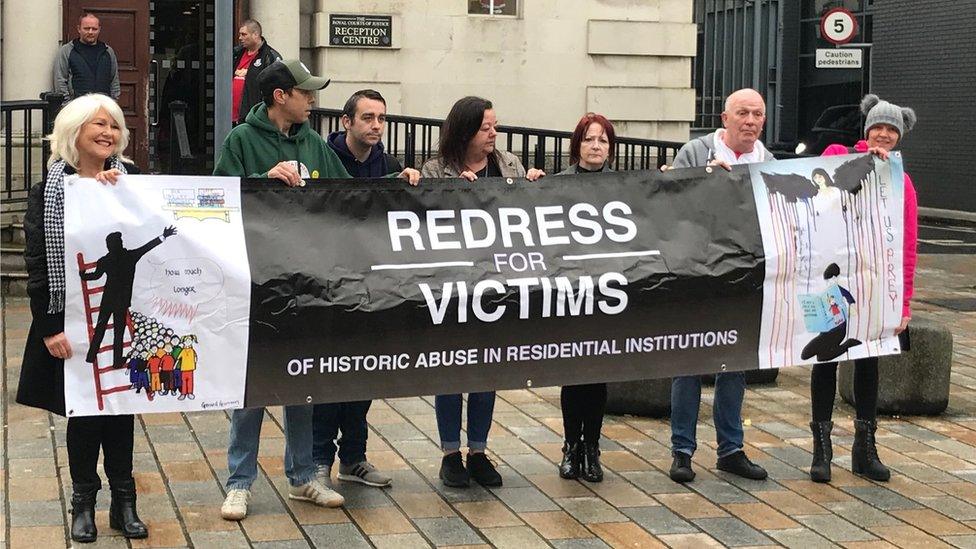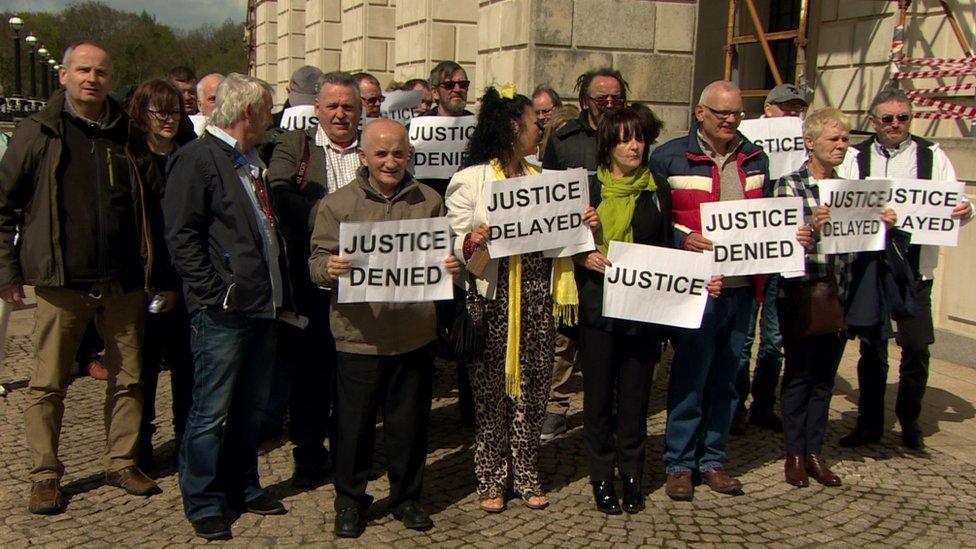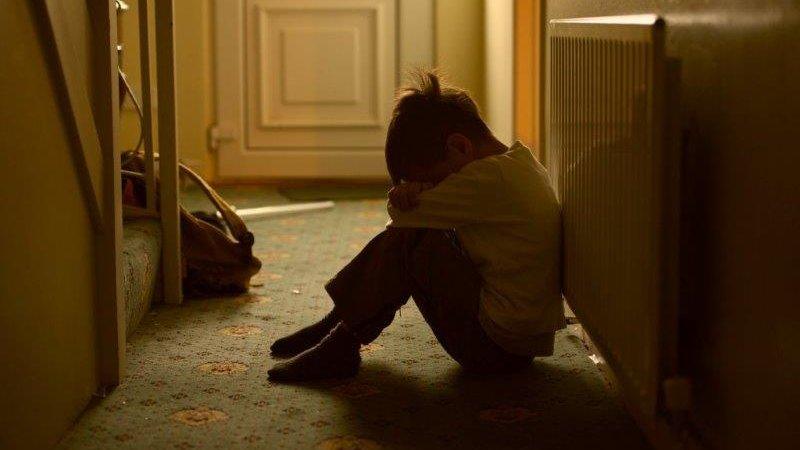Historical abuse: Stormont can issue compensation, court rules
- Published

Campaigners have been calling for compensation to be implemented since the start of 2017
Appeal court judges have ruled that Stormont's Executive Office has the power to compensate institutional abuse victims in Northern Ireland.
The Historical Institutional Abuse (HIA) Inquiry investigated historical allegations of child abuse.
It examined residential institutions run by religious, charitable and state organisations.
The inquiry recommended a compensation scheme in January 2017 but that has yet to be implemented.
After the appeal court ruling on Monday, they called on the Executive Office to apologise for its failure to pay compensation.
The inquiry chair Sit Anthony Hart recommended in his report that all victims of institutional abuse should receive tax-free, lump sum payments ranging from £7,500 to £100,000 from a government-funded redress scheme.
Historical abuse: NI Executive Office 'caused us more pain and torture'
However, it was published just days after the collapse of Northern Ireland's devolved government and no ministers were in post to set up the redress scheme.
Since then, victims' groups have lobbied the Northern Ireland Office to pass the compensation legislation at Westminster.
They also brought a judicial review challenging the lack of action by the government.
Compensation bill due for Commons debate
On Thursday, the House of Lords finished its work on a bill enabling compensation payments to be made to abuse victims.
The bill has cross-party support but must pass be approved in the House of Commons by Tuesday night before Parliament dissolves in order for it to be implemented.
It has been unclear whether there would be enough time for that to happen but the bill is on the Commons order paper for Tuesday, meaning it is due to be debated.
Margaret McGuckin, from the group Survivors and Victims of Institutional Abuse, said going through the process was like torture.
"[We're] delighted, overjoyed but such a pity that we had to go to the High Court - not only the High Court but the High Court of Appeal to find the truth," she said.

Inquiry chairman Sir Anthony Hart died before his recommendations were acted upon
"They are public servants who are supposed to be working for us but it seemed all the steps of the way they were against us.
"They used us constantly as a political football."
On Monday, appeal court judges found that what children suffered in state and church run homes between 1922 and 1995 amounted to torture.
The judges found that Northern Ireland secretary should have directed the Executive Office to compensate survivors in the absence of a functioning Northern Ireland Assembly.
They were also critical of legislation brought in by former Northern Ireland Secretary Karen Bradley, giving civil servants more powers because of Stormont's collapse.
They described it as undemocratic and said it did not provide good governance for Northern Ireland.
In response, a government spokesperson said: "The secretary of state notes the judgment from the Court of Appeal today and will consider the detail of it carefully."
The HIA Inquiry, chaired by the late Sir Anthony Hart, investigated historical allegations of child abuse in residential institutions run by religious, charitable and state organisations.
It examined 22 institutions and its remit covered a 73-year period ranging from 1995 back to the foundation of Northern Ireland.
- Published5 September 2019

- Published23 August 2019

- Published20 January 2017
